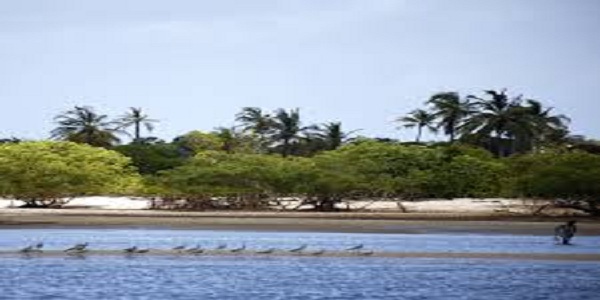Rome – FAO yesterday marked World Water Day by highlighting the opportunity that treated wastewater represents for agriculture, and improved food security and nutrition.
Globally, most wastewater is released into the environment without being treated. As a result, in many regions of the world, contaminated water is discharged into rivers and lakes and ends up in oceans. But treated and reused wastewater can be a cost-effective and sustainable solution to water scarcity.
“We need to use water in agriculture in a more efficient, productive, equitable and environmentally friendly way where quality is not compromised,” FAO’s Deputy-Director General, Maria Helena Semedo, said at a World Water Day ceremony at the UN agency’s Rome headquarters. “We should maximize the potential of wastewater as a valuable and sustainable resource.”
In his remarks, President of Fiji Jioji Konousi Konrote, said: “There is an urgent need for greater investment and research into the management of wastewater to reduce the life-threatening impacts that wastewater pollution has on our environment. With enough effort there is potential to turn wastewater into a valuable resource.”
“The challenges in getting this done vary by country, but many challenges are shared and we need close cooperation between nations to push action on this issue.”
The government of Fiji is poised to assume the presidency of the next Conference of the Parties to the UN Framework Convention on Climate Change.
While agriculture accounts for around 70 percent of freshwater withdrawals, only a small percentage of treated wastewater is being reused by agriculture. FAO is working with its Member States to increase the reuse of treated wastewater in a safe and secure way.
In Jordan, for example, 90 percent of treated wastewater is used for irrigation, and in Israel treated wastewater accounts for nearly half of all water used for irrigation. At least 50 countries worldwide are known to use wastewater for irrigation, accounting for an estimated 10 percent of all irrigated land. However, data remains incomplete for many regions including Africa.
The Global Framework on Water Scarcity, launched by FAO, promotes alternative sources of water, such as rainwater harvesting and the reuse of treated wastewater. It also encourages sharing knowledge and developing innovative approaches to deal with water issues in agriculture.
This year’s United Nations World Water Development Report, released today by UN-Water, calls for a quantum shift to see wastewater as a resource rather than a problem in a world where water is increasingly scarce but demand for it is growing.
FAO contributed a chapter that highlights that agriculture is both a producer and user of wastewater, and that the sector can both cause and suffer the consequences from pollution.
Treated wastewater can also be a potential source of raw materials such as phosphorus and nitrates that can be turned into fertilizer. An estimated 22% of global demand for phosphorus, a finite and depleting mineral resource, could be met by reusing treated wastewater.
Improved wastewater management generates social, environmental and economic benefits, and contributes to the achievement of the Sustainable Development Goals. Key to improving wastewater management is to highlight its benefits and raise social acceptance of the use of treated wastewater.
Prepared By: Sh. Kh.

